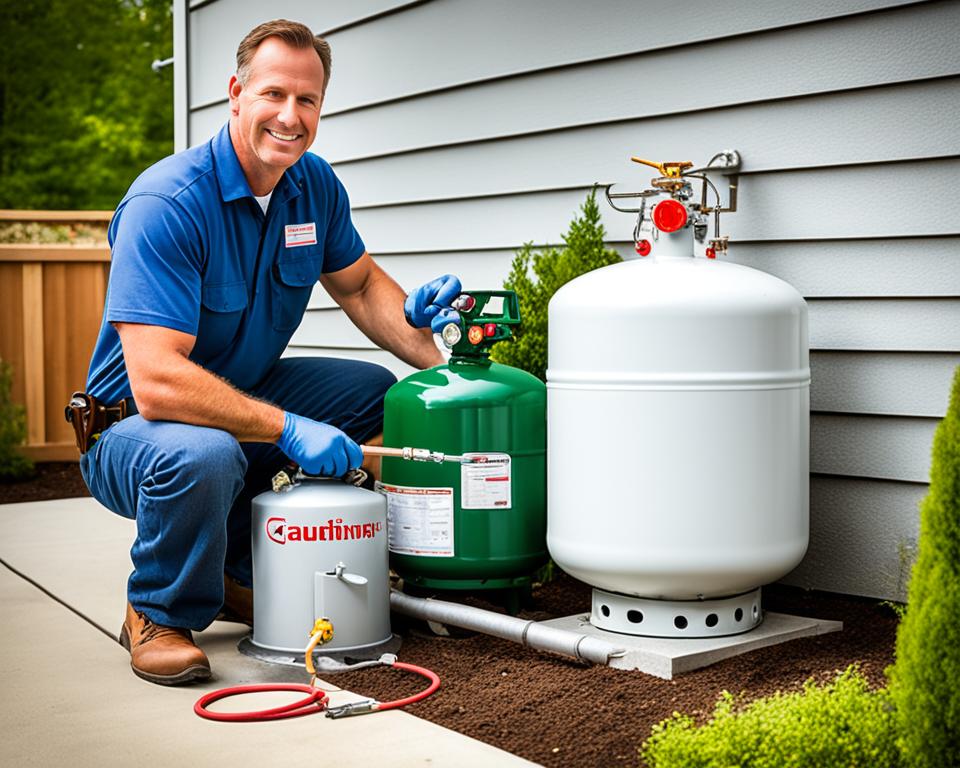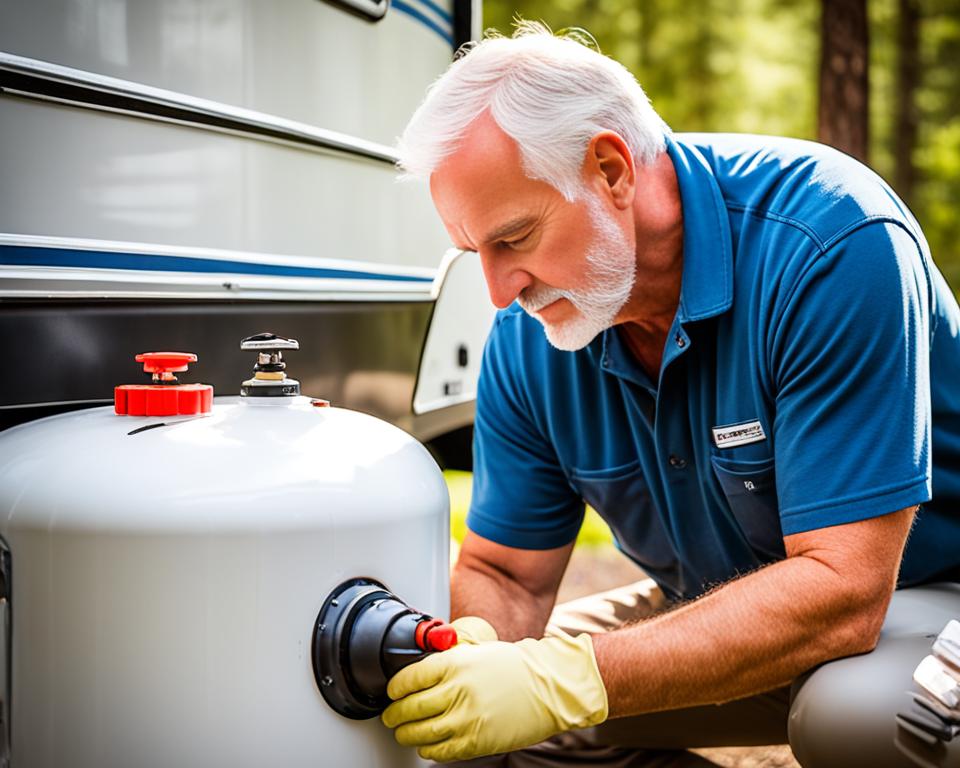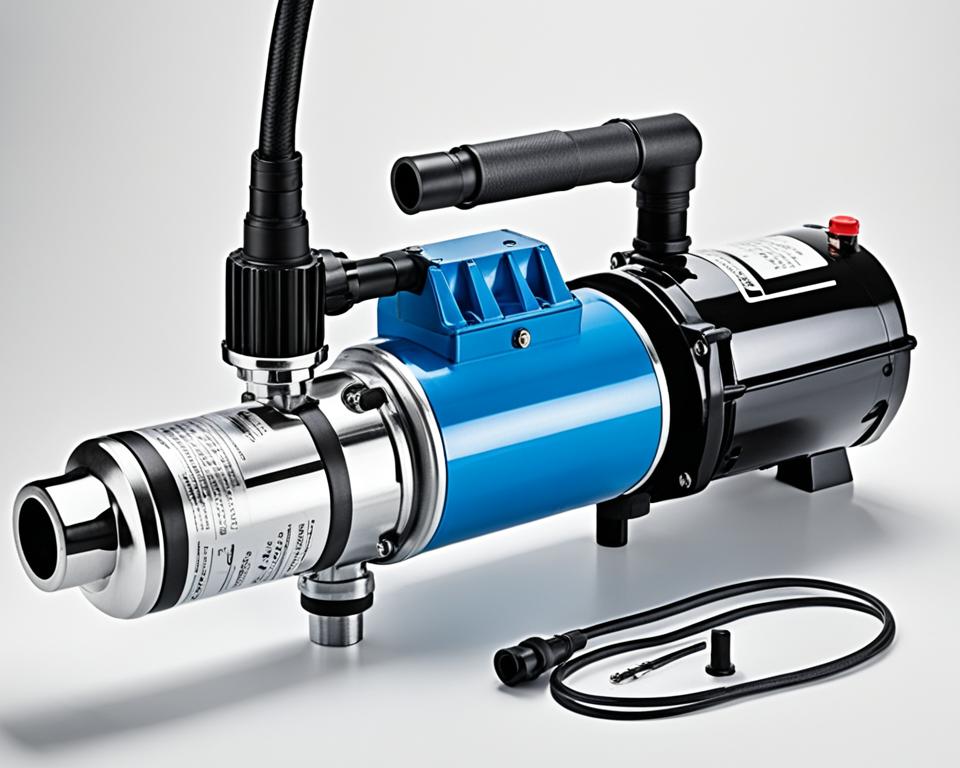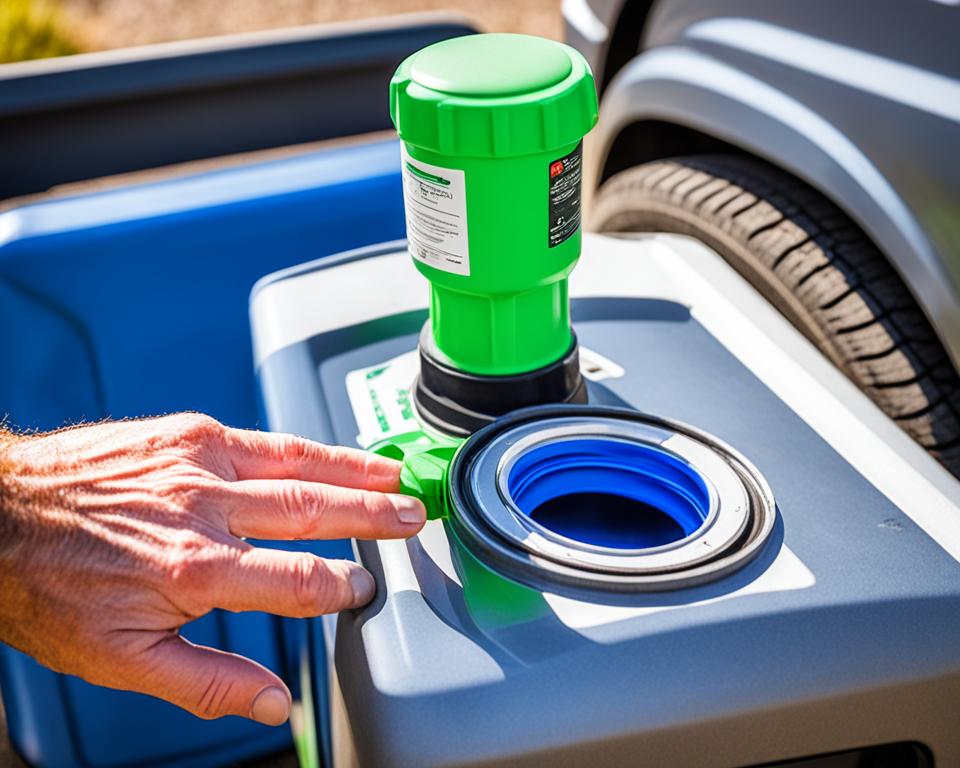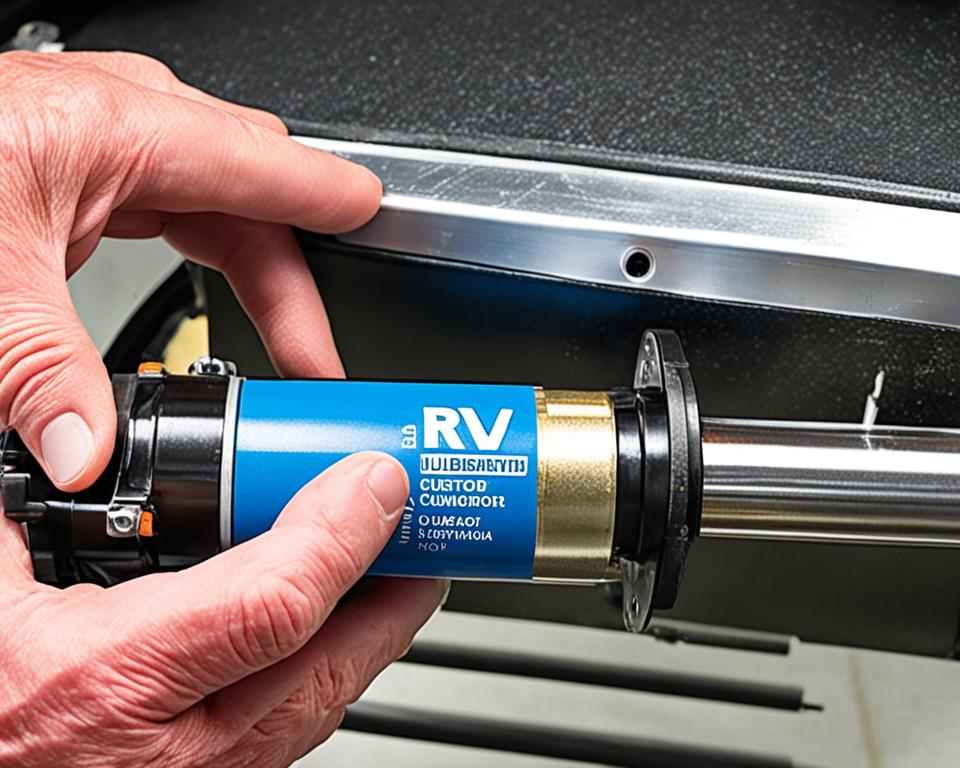Propane is a versatile and efficient fuel source commonly used in residential settings. However, it requires careful handling and maintenance to ensure safety. This article provides essential tips for safe propane system maintenance, covering topics such as understanding propane safety, key components of a propane system, potential risks of propane misuse, and best practices for safe propane usage.
Key Takeaways:
- Understanding propane safety is crucial for safe propane system maintenance.
- Familiarize yourself with the key components of a propane system to detect potential issues early.
- Misuse of propane can lead to significant hazards such as fire, explosion, and carbon monoxide poisoning.
- Follow best practices for safe propane usage, including proper handling and storage of propane tanks.
- Be prepared for propane emergencies by knowing how to spot and react to propane leaks and handle power outages.
Understanding Propane Safety
Propane safety is of utmost importance when it comes to maintaining a secure and efficient propane system. It involves a comprehensive understanding of the propane system, identifying potential risks, and implementing preventive measures. By being aware of the intricacies and hazards associated with propane, homeowners can take the necessary precautions to ensure the safety and longevity of their propane system.
One of the key aspects of propane safety is regular maintenance and inspections. By conducting routine check-ups, homeowners can identify and address potential issues before they escalate, minimizing the risk of accidents or system failures. Regular inspections help ensure that all components are in proper working condition and that the system meets safety standards.
Through a combination of proactive maintenance and professional inspections, homeowners can identify and mitigate various propane system risks. This includes checking for gas leaks, ensuring proper ventilation, verifying the integrity of gas lines, and inspecting propane appliances for any signs of damage or malfunction.
It is important to note that propane safety is not only a homeowner’s responsibility but also requires the expertise of qualified professionals. Certified technicians and propane service providers have specialized training and knowledge to handle propane systems safely and effectively. They can conduct thorough inspections, diagnose any potential issues, and provide the necessary maintenance or repairs to keep the system running smoothly.
“Regular maintenance and inspections play a vital role in ensuring the safe and efficient operation of a propane system.”
In summary, understanding propane safety is essential for homeowners who rely on propane systems. By familiarizing themselves with the risks associated with propane misuse and implementing regular maintenance and inspections, homeowners can ensure the safe operation of their propane systems. Additionally, seeking the assistance of qualified professionals can further enhance propane safety and provide peace of mind.
Key Components of Your Propane System
Understanding the key components of your propane system is crucial for safe and effective propane system maintenance. By familiarizing yourself with these components, you can detect potential issues early and prevent propane-related accidents.
Propane Tank
The propane tank is the primary storage container for propane. It is typically located outside of the house and holds the propane fuel. Regular inspection and maintenance of the tank are essential to ensure its integrity and prevent leaks or other malfunctions. When inspecting the propane tank, look for signs of damage, such as rust or corrosion, and ensure the tank is securely anchored to prevent tipping or shifting.
Regulator
The regulator is responsible for controlling the flow of propane from the tank to the appliances. It reduces the high-pressure propane to a safe and usable level. Regularly check the regulator for any signs of damage or wear, and ensure it is properly connected and functioning correctly.
Service Valve
The service valve acts as the main shut-off valve for the propane system. It allows you to isolate the propane supply in case of emergencies or maintenance. It’s essential to know the location of the service valve and how to operate it properly. Remember to close the service valve when not using the propane system for an extended period.
Gas Lines
Gas lines transport propane from the tank to the appliances in your home. They are typically made of durable materials such as copper or stainless steel and require regular inspection for leaks or damage. If you suspect a gas leak, immediately shut off the service valve and seek professional assistance.
Relief Valve
The relief valve is a safety feature designed to release excess pressure from the propane tank. It helps prevent over-pressure situations that can lead to tank rupture or explosion. The relief valve should be inspected periodically to ensure it is functioning correctly and not obstructed.
Propane Appliances
Propane appliances, such as water heaters, stoves, and furnaces, are connected to the propane system and utilize propane as a fuel source. It’s crucial to follow the manufacturer’s instructions for proper installation, operation, and maintenance of these appliances. Regularly inspect the appliances for any signs of damage and ensure they are operating safely and efficiently.
| Propane System Component | Importance |
|---|---|
| Propane Tank | Primary storage container for propane |
| Regulator | Controls the flow of propane |
| Service Valve | Main shut-off valve |
| Gas Lines | Transport propane to appliances |
| Relief Valve | Releases excess pressure |
| Propane Appliances | Utilize propane as fuel |
By understanding and properly maintaining these key components of your propane system, you can ensure the safety, efficiency, and longevity of your propane system and appliances.
Potential Risks of Propane Misuse
Improper handling or misuse of propane can result in significant hazards. It’s important to be aware of these risks to ensure safe propane usage and maintenance.
Risks of Propane Fire and Explosion
Propane is highly flammable, and if not handled properly, it can lead to fire and explosion. The ignition of propane gas can occur from sparks, open flames, or even static electricity. A small propane leak in an enclosed area can quickly escalate into a dangerous situation, putting lives and property at risk. It is essential to follow safety guidelines and maintain propane systems to prevent fire and explosion incidents.
Carbon Monoxide Poisoning
Propane-fueled devices, such as heaters or generators, produce carbon monoxide (CO) as a byproduct of incomplete combustion. CO is a colorless, odorless, and highly toxic gas. Inadequate ventilation or faulty equipment can lead to CO buildup, which can result in carbon monoxide poisoning. This can cause symptoms such as headache, dizziness, nausea, confusion, and, in severe cases, can be fatal. It is crucial to have proper ventilation and install carbon monoxide detectors in areas where propane appliances are used.
Asphyxiation
Propane is heavier than air and can displace oxygen in poorly ventilated areas, leading to asphyxiation. Breathing in an environment with reduced oxygen levels can be life-threatening. It is essential to maintain proper ventilation in enclosed spaces where propane is used and ensure vents are free from blockages.
Frostbite
Propane is stored at high pressure and can cause rapid cooling when released. Direct contact with liquid propane or escaping gas can cause frostbite, resulting in tissue damage. It is crucial to handle propane cylinders with care, using protective gloves and avoiding prolonged exposure to release valves or escaping gas.
Property Damage
Propane leaks can lead to property damage, including structural damage, fires, and explosions. In addition, improper installation or maintenance of propane systems can result in leaks that may go unnoticed, causing long-term damage to buildings and infrastructure. Regular inspections, adherence to safety guidelines, and prompt repairs are essential to prevent property damage.
Environmental Hazards
Improper disposal or leakage of propane can pose environmental hazards. Propane is a greenhouse gas and can contribute to air pollution and climate change when released into the atmosphere. It can also contaminate soil and water sources, causing harm to ecosystems. Proper storage, handling, and disposal of propane are necessary to minimize environmental impact.
Understanding and being aware of these potential risks associated with propane misuse is crucial for maintaining safety, protecting lives, and preserving the environment.
Best Practices for Safe Propane Usage
When it comes to propane usage, following safety protocols is crucial to ensure the well-being of both your family and your property. By implementing the best practices outlined below, you can significantly reduce the risks associated with propane usage.
Handling and Storing Propane Tanks
Proper handling and storage of propane tanks is essential for maintaining safety. Always remember to:
- Keep propane tanks upright to prevent leaks.
- Store tanks outdoors in well-ventilated areas away from potential ignition sources.
- Regularly inspect tanks for signs of damage or wear.
By adhering to these guidelines, you can minimize the risk of propane leaks and potential accidents.
Operating Propane Appliances
Correctly operating propane appliances is vital for safety. Consider the following when using propane-powered devices:
- Follow the manufacturer’s instructions for installation and operation.
- Ensure proper ventilation to prevent the buildup of dangerous gases, such as carbon monoxide.
- Regularly inspect and maintain appliances to prevent malfunctions or leaks.
By taking these precautions, you can use propane appliances with confidence, knowing that you are minimizing the associated risks.
Following Propane Safety Protocols
Propane safety protocols are designed to protect you and your loved ones. Make sure to:
- Always keep propane appliances and tanks away from flammable materials.
- Never tamper with propane system components or attempt repairs without professional assistance.
- Equip your home with carbon monoxide detectors, and test them regularly.
These safety protocols serve as an additional layer of protection against potential accidents and hazards.
“Propane usage becomes safely efficient when best practices are followed consistently.”
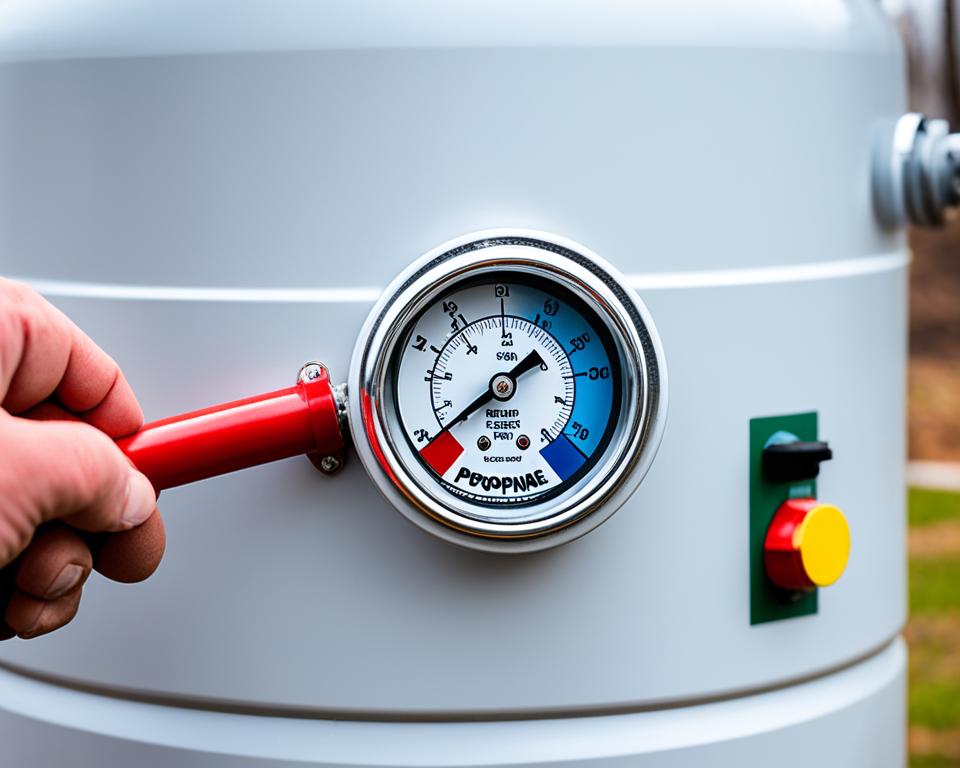
| Safe Propane Usage Practices | Benefits |
|---|---|
| Proper handling and storage of propane tanks | – Reduces the risk of propane leaks – Prevents potential accidents and property damage |
| Operating propane appliances correctly | – Ensures the safe and efficient usage of appliances – Minimizes the risk of malfunctions or leaks |
| Following propane safety protocols | – Provides an additional layer of protection against potential hazards – Enhances overall propane system safety |
By adhering to these best practices and incorporating them into your propane usage routine, you can enjoy the benefits of efficient and safe propane usage.
Handling and Storing Propane Tanks Rightly
Proper handling and storage of propane tanks are crucial for safe propane system maintenance. To ensure the safety of your propane tank, follow these guidelines:
1. Transporting Propane Tanks
- Always transport propane tanks upright to prevent leakage.
- Secure the tank during transportation to avoid accidents or damage.
- Ensure that the tank is properly sealed and the valve is closed before transport.
2. Storing Propane Tanks
- Store propane tanks outdoors in well-ventilated areas to prevent the buildup of flammable gases.
- Avoid storing tanks near ignition sources, open flames, or combustible materials.
- Keep tanks away from high heat or direct sunlight to prevent pressure buildup.
3. Inspecting Propane Tanks
Regular inspections are essential to identify any signs of damage or wear on propane tanks. Conduct visual inspections and look for the following:
- Check for dents, corrosion, or rust on the tank.
- Inspect the valve for any leaks or damage.
- Ensure that the tank’s pressure relief valve is in proper working condition.
- Examine the tank’s hoses and connectors for cracks or leaks.
It is recommended to have a professional propane technician inspect your tanks periodically to ensure their safe operation.
“Regular inspections and maintenance of propane tanks are essential to prevent potential accidents and ensure the safety of your propane system.”
By handling propane tanks correctly, storing them safely, and performing regular inspections, you can minimize the risks associated with propane usage and maintain the integrity of your propane system.
Operating Propane Appliances Safely
The proper installation and operation of propane appliances are essential for maintaining a safe propane system. By adhering to manufacturer’s instructions, ensuring proper ventilation, and utilizing carbon monoxide detectors, you can minimize risks and ensure the well-being of your household.
Propane Appliance Installation
When installing propane appliances, it is crucial to follow the manufacturer’s guidelines and utilize professional services if needed. Improper installation can lead to gas leaks, poor performance, and potential hazards. By relying on qualified technicians, you can ensure that your propane appliances are installed correctly and operate safely.
Importance of Manufacturer’s Instructions
Propane appliances come with specific instructions from the manufacturer that outline their safe and efficient operation. These instructions cover important details such as ignition procedures, maintenance requirements, and troubleshooting guidance. It is vital to carefully read and follow these instructions to maximize safety and appliance longevity.
Professional Propane Appliance Repairs
If you encounter any issues with your propane appliances, it is crucial to seek professional repairs. Attempting to fix propane appliances without proper knowledge and experience can be dangerous and may void warranties. Professional technicians have the expertise to diagnose and repair any problems, ensuring the safe and efficient functioning of your propane appliances.
Significance of Proper Ventilation and Carbon Monoxide Detectors
Proper ventilation is crucial for propane appliances to operate safely. It allows for the elimination of any potentially harmful gases, such as carbon monoxide. Installing carbon monoxide detectors near your propane appliances and in sleeping areas is an additional safety measure. These detectors can alert you to the presence of this odorless and potentially deadly gas, ensuring timely action and protection for your household.
| Propane Appliance Safety Tips |
|---|
| Follow manufacturer’s instructions for proper installation and operation. |
| Utilize professional services for propane appliance installation and repairs. |
| Ensure proper ventilation to prevent the accumulation of potentially harmful gases. |
| Install carbon monoxide detectors near propane appliances and sleeping areas. |
Preparing for Propane Emergencies
Being prepared for propane emergencies is essential for maintaining propane system safety. This section provides valuable information on propane leak detection, propane usage during power outages, and necessary evacuation protocols during severe emergencies. By understanding how to respond in propane emergencies and taking proactive measures, you can ensure the safety of your household.
Propane Leak Detection
One of the most critical aspects of propane emergency preparedness is detecting propane leaks. Propane is odorless, but a distinct odorant is added to help identify leaks. If you notice the smell of rotten eggs or sulfur, it could indicate a propane leak. It is crucial to act immediately if you detect a leak.
Propane Usage During Power Outages
Power outages can disrupt the operation of appliances that rely on electricity. In such situations, propane can be an essential resource for cooking, heating, and other needs. However, using propane during power outages requires specific safety precautions. Ensure that your propane appliances are properly installed and operating correctly. It’s also crucial to follow manufacturer guidelines and avoid using propane equipment indoors or in enclosed spaces that lack proper ventilation.
Evacuating During Propane Emergencies
In severe propane emergencies, it might be necessary to evacuate your home. Establishing an evacuation plan in advance is crucial to ensure a swift and safe exit. Identify multiple evacuation routes, communicate the plan with all household members, and practice the evacuation procedure regularly. Additionally, make sure everyone knows the location of the emergency shut-off valve and how to turn off the propane supply, if it is safe to do so.
By prioritizing propane emergency preparedness, including propane leak detection, understanding propane usage during power outages, and having a well-rehearsed evacuation plan, you can effectively respond to propane emergencies and protect your loved ones.
Spotting and Reacting to Propane Leaks
Detecting and responding to propane leaks is crucial for propane system maintenance. By promptly identifying leaks and taking appropriate action, you can ensure the safety of your home and prevent potential hazards.
Recognizing the Distinctive Odor
Propane gas is colorless and odorless, but for safety purposes, an odorant called ethyl mercaptan is added to make it easily detectable. The distinctive smell of rotten eggs or a skunk’s spray is a clear indication of a propane leak. If you notice this odor, follow these steps:
- Do not ignite any flames or sparks.
- Refrain from using any electrical equipment or switches.
- Do not use your phone or any other device that could create a spark.
- Quickly evacuate everyone from the building, moving to a safe location outside.
Employing Gas Detectors
In addition to relying on your sense of smell, gas detectors can provide an extra layer of protection by alerting you to the presence of propane gas. Install propane gas detectors in key locations throughout your home, especially near propane appliances and storage areas. These devices will sound an alarm if the propane concentration exceeds safe levels, enabling you to take prompt action.
When selecting a gas detector, choose one that is specifically designed for propane leaks and follow the manufacturer’s installation and maintenance instructions.
Evacuation and Professional Help
If you suspect a propane leak, prioritize your safety and evacuate everyone from the premises. Once outside, stay a safe distance away and call your propane supplier or a qualified professional to report the leak. They will be able to assess the situation and take the necessary steps to resolve the issue.
Remember, propane leaks can be dangerous and should be taken seriously. Being vigilant and prepared for such situations can help protect yourself, your loved ones, and your property.
Dealing with Power Outages
Power outages can disrupt the normal functioning of propane systems, requiring homeowners to take precautionary measures to ensure safety. In this section, you will find valuable tips on managing propane usage during power outages, shutting off propane equipment correctly, and ensuring propane safety after power is restored.
Safely Managing Propane Usage during Power Outages
During a power outage, it is important to use propane equipment judiciously to conserve fuel and avoid potential safety hazards. Consider the following tips:
- Use propane appliances only when necessary.
- Minimize the use of propane-powered devices to conserve fuel and extend runtime.
- Limit propane use to essential appliances such as heaters, water heaters, and cooktops.
- Turn off non-essential appliances and unplug them to prevent accidental usage.
Proper Shut-Off Procedures for Propane Equipment
When a power outage occurs, it is crucial to shut off propane equipment correctly to prevent leaks and ensure safety. Follow these steps:
- Turn off the main gas supply valve on the propane tank. Rotate the handle clockwise until it is fully closed.
- Shut off individual propane appliances at their respective service valves. Turn the valve clockwise until it stops.
- Check that all burners and pilot lights are extinguished before leaving the area.
Propane Safety after Power Restoration
After power is restored, it is essential to perform safety checks before resuming normal propane usage. Take the following precautions:
- Inspect the propane system for any visible damage or leaks.
- Check all propane appliances for functionality and signs of damage.
- If you suspect a gas leak, follow appropriate procedures, evacuate the area, and contact a professional propane service provider.
- Consider scheduling a professional inspection of your propane system to ensure its safe operation.
By adhering to these guidelines, you can effectively manage propane usage during power outages, shut off propane equipment safely, and prioritize propane safety after power is restored. It is essential to always exercise caution and seek professional assistance when dealing with propane systems.

Qualified Professionals
When it comes to maintaining a safe propane system, the expertise of qualified professionals is paramount. Hiring professional propane service providers for installation, maintenance, and repairs ensures that the job is done correctly and upholds the highest safety standards.
Professional propane service providers have the knowledge and experience to handle propane installation and maintenance with precision. They are well-versed in the intricacies of propane systems, including the key components and potential risks. Their expertise allows them to identify and address any issues promptly, preventing potential accidents or hazards.
One of the key benefits of consulting professional propane service providers is their ability to conduct thorough propane system inspections and repairs. They possess the tools and expertise to perform comprehensive inspections, identifying any potential leaks, malfunctions, or other issues that could compromise the safety or efficiency of the system. In the event of a repair, they have the skills and resources to rectify the problem effectively.
By entrusting your propane system to qualified professionals, you can have peace of mind knowing that your system is in capable hands. Their in-depth knowledge and experience ensure that installation, maintenance, inspections, and repairs are conducted to the highest standards of safety and quality.
Benefits of hiring professional propane service providers:
- Expertise in propane installation and maintenance.
- Thorough propane system inspections.
- Prompt repairs for any issues.
- Adherence to safety standards.
- Peace of mind knowing the system is in capable hands.
When it comes to the safety and proper functioning of your propane system, relying on professional propane service providers is the best approach. Their knowledge, expertise, and dedication to safety ensure that your propane system operates efficiently and securely.
| Benefits of hiring professional propane service providers |
|---|
| Expertise in propane installation and maintenance |
| Thorough propane system inspections |
| Prompt repairs for any issues |
| Adherence to safety standards |
| Peace of mind knowing the system is in capable hands |
Conclusion
Prioritizing safe propane system maintenance is crucial for ensuring the safety of your home and family. This article has provided essential tips and guidelines for safe propane system maintenance, highlighting the importance of understanding propane safety, familiarizing yourself with key components of a propane system, following best practices for safe propane usage, and being prepared for propane emergencies.
By following these guidelines, you can confidently maintain a safe and efficient propane system. Regular maintenance and inspections, along with proper handling and storage of propane tanks, are key to preventing potential risks such as fire, explosion, carbon monoxide poisoning, and property damage. Additionally, operating propane appliances safely, spotting and reacting to propane leaks promptly, and knowing how to deal with power outages will contribute to a safer propane system and overall peace of mind.
It’s important to note that propane system maintenance should be entrusted to qualified professionals. Hiring experienced and certified propane service providers for installation, maintenance, and repairs ensures the proper functioning and safety of your propane system. Don’t hesitate to seek professional help when needed, as their expertise and knowledge will play a vital role in keeping your propane system in optimal condition.
By recognizing the importance of propane system safety and the significance of regular maintenance, you are taking a proactive step towards safeguarding your home, family, and property. Remember, a well-maintained propane system not only ensures efficient fuel usage but also provides you with peace of mind knowing that your propane system is operating safely and effectively.
FAQ
What is propane safety and why is it important?
Propane safety encompasses knowledge about the propane system, potential risks, and preventive measures. It is important to understand the intricacies of a propane system and be aware of the dangers that can arise from misuse.
What are the key components of a propane system?
A typical residential propane system consists of several key components including a propane tank, regulator, service valve, gas lines, relief valve, and propane appliances.
What are the potential risks of propane misuse?
Improper handling or misuse of propane can lead to hazards such as fire and explosion, carbon monoxide poisoning, asphyxiation, frostbite, property damage, and environmental hazards.
What are the best practices for safe propane usage?
Following safety protocols is essential for safe propane usage. This includes handling and storing propane tanks properly, operating propane appliances correctly, and following propane safety protocols.
How should I handle and store propane tanks correctly?
Proper handling and storage of propane tanks involve guidelines for transporting, storing, and inspecting propane tanks. It is important to keep tanks upright, store them outdoors in well-ventilated areas, and regularly inspect them for signs of damage or wear.
How can I operate propane appliances safely?
To operate propane appliances safely, it is important to follow manufacturer’s instructions for proper installation, seek professional repairs, ensure proper ventilation, and have carbon monoxide detectors installed.
How can I prepare for propane emergencies?
Being prepared for propane emergencies involves propane leak detection, knowing how to use propane during power outages, and following necessary evacuation protocols during severe emergencies.
How can I spot and react to propane leaks?
Propane leak detection involves recognizing the distinctive odor and employing gas detectors. In case of a suspected propane leak, immediate evacuation and seeking professional help are crucial.
How should I manage propane usage during power outages?
During power outages, it is important to follow proper shut-off procedures for propane equipment and conduct post-outage appliance checks to ensure safe operation.
Why should I consult qualified professionals for propane system maintenance?
Consulting qualified professionals, such as professional propane service providers, is essential for safe propane system maintenance. They can handle installation, maintenance, and repairs, ensuring the safety and proper functioning of propane systems.
Why is safe propane system maintenance important?
Prioritizing safe propane system maintenance is crucial for ensuring the safety of your home and family. By following guidelines and seeking professional help when needed, you can maintain a safe and efficient propane system.

